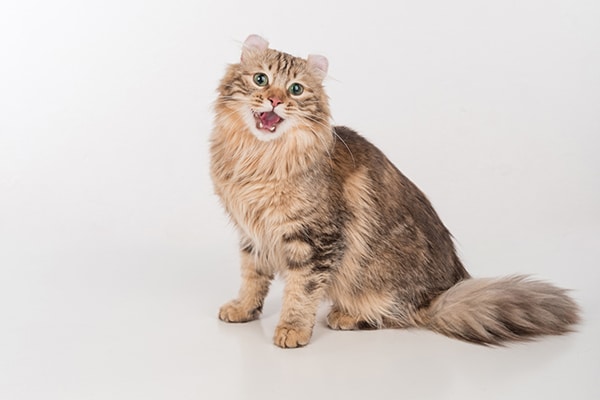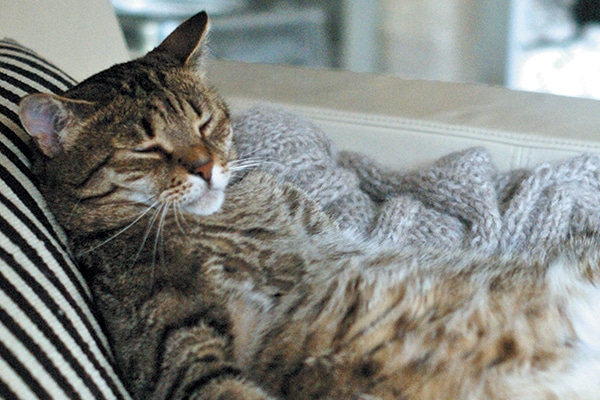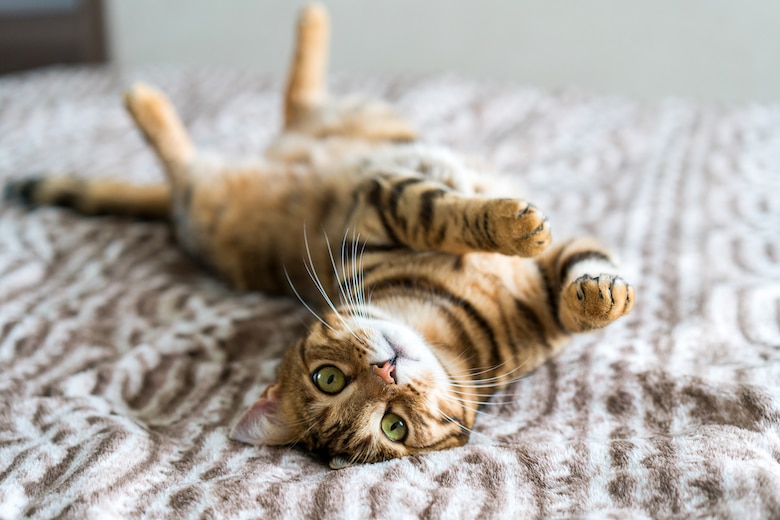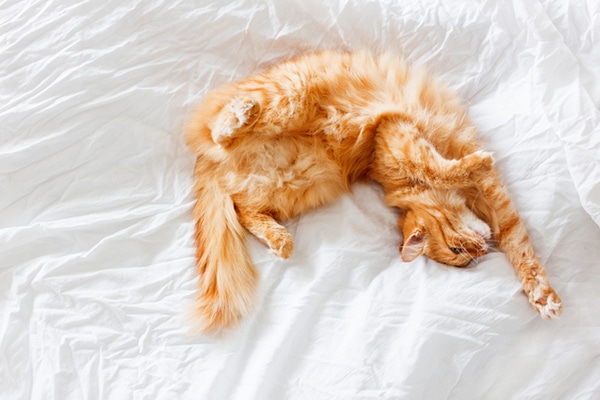We often think of cats as aloof, standoffish and less social than their canine counterparts. But the truth is that cats have needs, and they want to feel fulfilled and entertained.
“Boredom and lack of mental stimulation are really important because [to recognize] it really affects a cat’s psyche,” says Dr. Jamie Richardson, the medical Chief of Staff at Small Door Veterinary. “When a cat is bored, it can lead to detrimental behavior because they will try to find a way to entertain themselves.”
This is particularly problematic for indoor cat parents, as Kitty may entertain herself by peeing outside the litter box or swinging from curtain rods. Though this may be frustrating for humans, it’s important to think about why the cat is doing it.
“When cats are outdoors, they are able to have a lot of stimulation and tap into their predatory drive,” Dr. Richardson says. “We’re domesticating and making them be inside. What we need to do is tap into that and replicate it as much as we can to try to give them that mental stimulation they really need.”
Dr. Richardson shares signs your cat may be bored and solutions for making life more fun and fulfilling.

Photography ©White_bcgrd | Thinkstock.
Incessant meowing
If Kitty is extra vocal, she may be telling you she’s bored.
Related: Why Does My Cat Yowl After Eating?
“Sometimes, it’s pain or a medical issue like dementia,” Dr. Richardson says. “Other times, it’s attention-seeking behavior. They want someone to entertain them and interact with them.”
Self-harm
If your cat isn’t mentally enriched, she can not only become bored but anxious and obsessive-compulsive. This can lead to over-grooming.
“They’ll excessively lick the fur, especially on their inner thigh or belly,” Dr. Richardson says. “Sometimes, cats do it so excessively it will irritate the skin.”
Destructive to the house
If you have a new baby, moved in with a partner or are leaving the house more and your cat starts peeing on your pillow, it’s not out of spite.
“When they’re bored, that can lead to anxiety, and they can urinate elsewhere,” Dr. Richardson says. “A common place is on the owner’s bed.”
Other destructive behaviors include climbing and swinging from the curtains.

Photography ©Lulamej | Thinkstock.
Overeating and sedentary behavior
Younger cats often try to find ways to entertain themselves that involve being active, but older cats are more likely to withdraw and overeat, Dr. Richardson says. This becomes a vicious cycle with poor health outcomes.
“As soon as a cat becomes more sedentary, they want to move less, become bumps on a log, and it’s harder to get them going,” Dr. Richardson says. “An overweight cat is not going to want to play and do some of the things they can do to enjoy life.”
Like in humans, obesity in cats puts pressure on joints, and can cause heart disease and diabetes.

Photo: Getty Images
How to keep your cat engaged?
Boredom is reversible, even in stubborn kitties. Dr. Richardson says the key is to find ways to stimulate them. Provide Kitty with appropriate places to climb and see the world.
“There are cat trees for every living space,” she says. “Windows can be great for cats to be able to observe the world and birds.”
Cat perches and hammocks make for cozy spots for a cat to sit and window shop.
Toys can also provide enrichment, but cats can be pickier than dogs.
“Each cat has different preferences,” Dr. Richardson says.
Experiment with a variety of options, like feathers, motorized toys, wands and catnip. Puzzle toys, Doc and Phoebe feeders and laser pointers play on Kitty’s hunting instincts.
“Make sure the laser pointer has an endpoint,” Dr. Richardson says.
Lead the cat to food or a toy. That way she thinks she hunted something.
Finally, Dr. Richardson advises pet parents to consult the vet if they notice a change in their cats’ behavior. Sometimes, these are signs of other health issues.
Featured Image: An orange tabby cat sleeping on a bed. Photography ©Aksenovko | Thinkstock.
Read Next: Do Cats Get Lonely or Are They Fine Without Other Cats?
